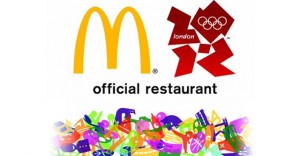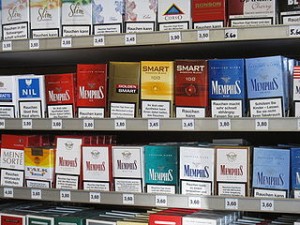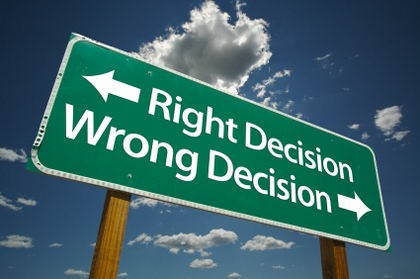Blog 1: Business Ethic Blog
To be socially responsible, businesses would support the community such as providing more job opportunity, or doing charity. And according to Freeman’s stakeholder’s theory, businesses should consider how to satisfy every stakeholders’ benefit, including consumers, employees, etc. However, I believe it is extremely hard, or even impossible to make such balance for every stakeholders, and sometime it is even harder for businesses to be “socially responsible”

McDonald, the biggest fast-food company, had done some sort of support to the community, such as Ronald McDonald House Charities, helping children with sever sickness, or being one of the sponsorship for the Olympic games since 1976. According to Milton Friedman, McDonald is using its own name for charity, and help promote and support such a huge sport event is a form of ”social responsibility”. Seemingly it is doing the society a favor, promoting merit goods to the society. However, it is also McDonald who is hugely responsible for biggest health issue in the world, obesity. Doesn’t it seem counter-intuitive for McDonald to help taking care of sick kids while they are feeding kids fast food that causes various health concerns, or supporting healthy sport with unhealthy food. But if we think in terms of stakeholder theory, McDonald does support a wide range of stakeholders including satisfying costumers with tasty food, caring for sick children, promoting the Olympic games while advertising its own company. However it certainly does not satisfy Olympic committee along with the health advisors or professors, it raises health concerns and it is not desirable product to advertise it in a sport event. In terms of stakeholder theory, it is hard to satisfy every stakeholder as one gain can be the others concern, just like with McDonald sponsorship is Olympic committee concern.
 Although McDonald attempt to do various things, McDonald only contributes 20% of its funding to Ronald McDonald while their reaps 100% of the “branded benefit” from the charity, but also paid $100 million for the publicity and goodwill it hopes its participation in the London Olympic games, they even offer journalist bottled water and fruits at a press during the Olympics. Although we cannot be completely sure what is McDonald’s motives, with McDonalds already unhealthy reputation and these charities or goodwill acts, makes us wonder what is the motives behind McDonald’s actions. Out of goodwill? Or for better corporate image? Or other? Is it for the sake of really supporting the community? Or for the sake of its own company? We cannot know for sure, but it is questionable whether this is an act of ‘social responsibility’.
Although McDonald attempt to do various things, McDonald only contributes 20% of its funding to Ronald McDonald while their reaps 100% of the “branded benefit” from the charity, but also paid $100 million for the publicity and goodwill it hopes its participation in the London Olympic games, they even offer journalist bottled water and fruits at a press during the Olympics. Although we cannot be completely sure what is McDonald’s motives, with McDonalds already unhealthy reputation and these charities or goodwill acts, makes us wonder what is the motives behind McDonald’s actions. Out of goodwill? Or for better corporate image? Or other? Is it for the sake of really supporting the community? Or for the sake of its own company? We cannot know for sure, but it is questionable whether this is an act of ‘social responsibility’.

People say cigarettes or tobacco is such a demerit to the society that it should be banned, and it is the job of the government to fix it, stopping people from smoking, providing clean environment. However, is tobacco company completely ”evil” to the society and that government intervention can completely solve the issue? It is true that cigarette causes a lot of health and environmental concerns, causing respiration system failure, polluting the air in the city, etc. But if we think in another way, tobacco can be a huge assess to the society. (not supporting smoking, just trying to make a point.) In a study in 1997, ”The bulk of jobs generated by the Tobacco Industry in the U.S. are in manufacturing (48,800 employed at 114 tobacco factories in 21 states) and farming (136,000 employed in 23 states).” which is good for the society, it creates a lot of job opportunity that reduces unemployment rate, from farming to labors for factories to trading between nations, providing people some financial support for their living and helps economic development for countries as many developing countries replies on tobacco industry as an economic activity. But the question need to be ask is, is this ”social responsible”? They provide lots of jobs for developing countries, so maybe it is to a certain extent and certainly is beneficial to some stakeholders. So even though cigarettes can cause serious health concerns, which is not desirable to non-smokers, their action can be beneficial to the society in some ways, just like to the workers in the production line, but this also means that Tobacco industry cannot satisfy every stakeholders. Which also raises another issue, is their production “socially responsible”? maybe not according to Milton Friedman, but it still provide some degree of befit to the society.
 While cigarette production increase in the 90s, manufacturing and farming jobs declined (such as farming jobs declined by 23% between 1985 and 1992) due to policy makers and government’s mandated health measures. It is natural for the government to impose policies on cigarette, such as imposing tax or having trading barriers to reduce the consumption of demerit goods, as it is government’s responsible to ensure the well being of citizens. However, it worsen the unemployment rate in this case. This raises the question, how much the government need to intervene and to what degree? Cigarettes are harmful to people’s health, sometimes with the government intervention, although it may help reduce consumption or production (in this case help boost employment in non-tobacco region), it may do some harm to the society at the same time. This shows that even with government intervention, it does not always necessarily lead to satisfaction for all stakeholders, cannot fully achieve Freeman’s stakeholder’s theory nor social responsibility.
While cigarette production increase in the 90s, manufacturing and farming jobs declined (such as farming jobs declined by 23% between 1985 and 1992) due to policy makers and government’s mandated health measures. It is natural for the government to impose policies on cigarette, such as imposing tax or having trading barriers to reduce the consumption of demerit goods, as it is government’s responsible to ensure the well being of citizens. However, it worsen the unemployment rate in this case. This raises the question, how much the government need to intervene and to what degree? Cigarettes are harmful to people’s health, sometimes with the government intervention, although it may help reduce consumption or production (in this case help boost employment in non-tobacco region), it may do some harm to the society at the same time. This shows that even with government intervention, it does not always necessarily lead to satisfaction for all stakeholders, cannot fully achieve Freeman’s stakeholder’s theory nor social responsibility.
To conclude, companies often can only achieve certain social responsibility and satisfy some stakeholders, since there will always be some conflict of interest between stakeholders, for example if companies is willing to hire more people out of social responsibility, this means higher labor cost, which may not lead to higher profit, which may not be desirable for shareholder who want more profit. It is because of the conflict of interest between stakeholders, I believe it would be extremely hard for businesses to be ethical with every decisions they make.
Reference
- Gilder Cooke, Sonia Van. “Do the Olympics Need Fast-Food Sponsors? | TIME.com.” Olympics Do the Olympics Need FastFood Sponsors Comments. Time, 30 July 2012. Web. 11 Sept. 2014.
- Horovitz, Bruce. “McDonald’s Slammed over Ronald McDonald House Giving.” USA Today. Gannett, 29 Oct. 2013. Web. 11 Sept. 2014.
- “Tobacco’s Impact on the Economy A Discussion Paper San Francisco Tobacco Free Coalition and the San Francisco Tobacco Free Project.”CorpWatch : Tobacco’s Impact on the Economy. CorpWatch, 30 June 1997. Web. 11 Sept. 2014.
